8 Most Dangerous: Electrical Hazards in Your Home
Electricity makes our homes comfy and convenient, but it can also be dangerous if not handled properly. Whether you live in an older home or a newly built one, there are hidden risks that could lead to electric shocks, fires, or worse.
The golden rule? Always call in a licensed, insured, and qualified electrician when doing any electrical work. DIY might seem like a cost-saver, but when it comes to electricity, it could cost you your home – or your life.
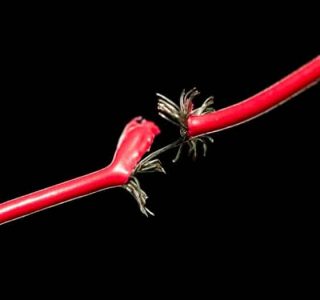
1. Dodgy or Damaged Wiring
Old, poor-quality, or DIY wiring is one of the biggest causes of house fires. Loose connections, worn-out insulation, or overloaded circuits can all spell disaster.
What to do:
Don’t muck around—get a qualified sparkie to inspect and update your wiring if needed. Never try to DIY it.
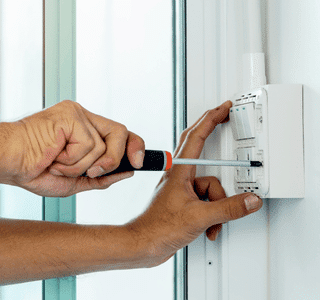
2. Power Points Too Close to Water
Mixing water and electricity? That’s a recipe for disaster. Wet areas like bathrooms, laundries, and kitchens are high-risk zones.
What to do:
Make sure power points are installed a safe distance from sinks, bathtubs, or taps. And never use electrical appliances with wet hands or near water.
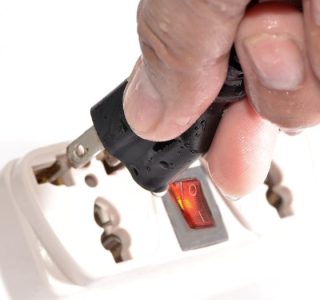
3. Wet Hands + Power = Trouble
What to do:
Dry your hands properly before using anything plugged in—like hairdryers, straighteners, or toasters.
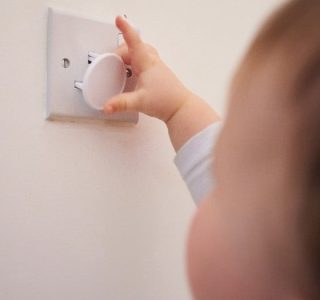
4. Curious Kids and Power Don’t Mix
Kids love poking around, but when they start sticking things into outlets or chewing cords, that’s a serious hazard.
What to do:
Use safety plugs, keep cords out of reach, and always unplug appliances when not in use.
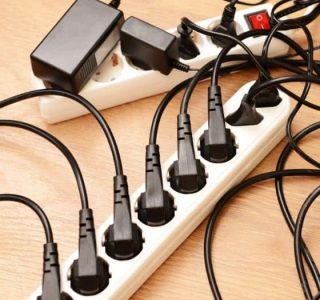
5. Overloaded Power Boards & Extension Cords
Got too many plugs jammed into one power board? You’re not alone—but it’s a fire risk. And extension cords shouldn’t be a permanent fix.
What to do:
Avoid overloading power boards. If you’re always short on sockets, get a licensed electrician to install more outlets.
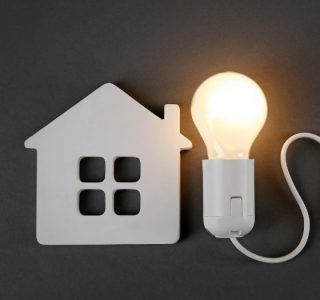
6. Lightbulbs Near Flammable Stuff
Lightbulbs can get pretty hot, especially older ones. Placing them near beds, curtains, or plastic items can be a fire hazard.
What to do:
Keep light fixtures away from anything flammable and switch to cooler, energy-efficient LED globes.
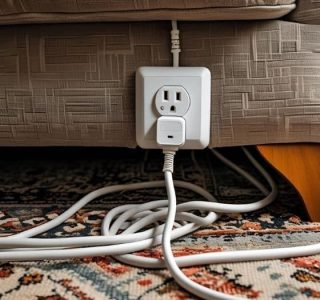
7. Cords Tucked Under Rugs or Furniture
Out of sight, out of mind—but cords covered by rugs or furniture can overheat and start a fire.
What to do:
Let cords breathe. Avoid running them under heavy items or where they might be crushed or damaged.
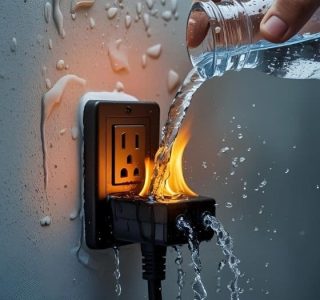
8. Don’t Use Water on Electrical Fires
If an electrical fire breaks out, your first instinct might be to grab a bucket of water—don’t! It can make things much worse.
What to do:
Keep a fire extinguisher rated for electrical fires on hand. If you don’t have one, turn off the power and smother the fire with a wool blanket. When in doubt—get out and call triple zero.
Need a Trusted Electrician?
If your home’s wiring is looking a bit outdated or you’re not sure how safe it is, get in touch with the experts at The Plumbing & Electrical Doctor.
Our licensed electricians can inspect, repair, and upgrade your electrical systems to meet current safety standards.
Call us today or book online – because your family’s safety should always come first.
THE DOCTOR GETS IT DONE
